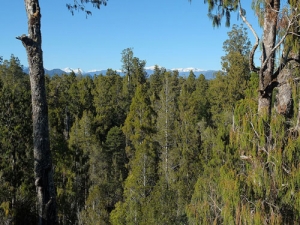ETS costs cut 66% for forest owners – McClay
Additional reductions to costs for forest owners in the Emissions Trading Scheme Registry (ETS) have been announced by the Government.
 Technology transfer, an industry census and promotion of careers in forestry are all planned in 2016 by the Forest Growers Levy Trust.
Technology transfer, an industry census and promotion of careers in forestry are all planned in 2016 by the Forest Growers Levy Trust.
Technology transfer, an industry census and promotion of careers in forestry are all planned in 2016 by the Forest Growers Levy Trust.
Funds raised by forest growers for research and other industry activities are expected to total $7.6 million in 2015, about $1 million more than budgeted.
Administrative expenditure has been kept under tight control.
This will allow the Forest Growers Levy Trust in 2016 to keep the levy rate on harvested logs to 27c/tonne for the second year in a row. It will also enable the Trust to expand the work it does for all growers, says chair Geoff Thompson.
"We are looking at innovative ways to communicate new technology and best practice to growers, especially the owners of smaller forests who may be unaware of the opportunities for increasing the profitability and environmental performance of their plantations," he says.
The successful technology transfer workshops pioneered in 2015 will now be expanded as part of this initiative.
Other new initiatives planned for 2016 include an industry census, the promotion of careers in forestry, and a study of the environmental effects of mechanical harvesting on steep hill country.
The census will be designed to capture the contribution forestry and wood processing makes to society, so that the value of the sector is better understood by policymakers and the public at large.
"We can easily put an accurate figure on exports," Thompson says. "But forestry is much more than that. We don't know how many people are employed in the sector, how many people own forests, the area of forests planted for erosion protection, the area of native wildlife habitat and so on."
He says the Trust worked extremely well in 2015 and the commodity levy that funds its activities appears to have widespread support among growers.
The core activities of the trust are research, biosecurity, safety, transport, fire prevention, industry promotion and advocacy.
Of these, research is by far the biggest ticket item, with a budget of $4.4 million. Thompson says that research into sustainable intensification of radiata forests – "growing more timber on the same area of land, without any harm to the environment" – is the area of greatest focus.
"This, together with other production forest research projects covering weed and disease control, the use of beneficial organisms and automated harvesting systems, are all designed to make forestry more profitable for levy payers and to protect the industry's social licence to operate," he says.
The Forest Health Surveillance Scheme (FHSS) is a vital part of the industry's biosecurity strategy, with a budget of around $800,000. The scheme aims to detect new incursions before they can establish and cause significant damage, and to provide assurances to trading partners that the industry knows what's living in its forests.
"Since the levy was established in 2014 we have, on expert advice, revised the scheme. We now survey forests throughout the country, rather than just those of FOA members, with an emphasis on areas of greatest risk. We have also better integrated the scheme with MPI's biosecurity monitoring.
"In 2016, we will be developing an incursion response capability, so we can play our part under the biosecurity agreement we now have with the government – the GIA. This will include the development of models that will help us understand the economic implications of an incursion and to do cost-benefit analyses of the various control options."
The Forest Industry Safety Council, established in 2015, will continue to be co-funded by the Trust, ACC and Worksafe. The Trust's share of $575,000 means safety is seen as a major priority for levy funding, something Thompson says is entirely appropriate.
"We have seen a dramatic drop in serious harm injuries in the last 18 months, in part because of the initiatives the industry has put in place in that time," Thompson says.
"But we still have an obligation to ensure that everyone who works in our industry returns home safely after work every day. The council's work will be key to us achieving the industry's goal of zero fatalities and zero serious harm injuries."
The South Island Dairy Event has announced Jessica Findlay as the recipient of the BrightSIDE Scholarship Programme, recognising her commitment to furthering her education and future career in the New Zealand dairy industry.
New Zealand and Chile have signed a new arrangement designed to boost agricultural cooperation and drive sector success.
New DairyNZ research will help farmers mitigate the impacts of heat stress on herds in high-risk regions of the country.
Budou are being picked now in Bridge Pā, the most intense and exciting time of the year for the Greencollar team – and the harvest of the finest eating grapes is weeks earlier than expected.
The Real Estate Institute of New Zealand (REINZ) has released its latest rural property report, providing a detailed view of New Zealand’s rural real estate market for the 12 months ending December 2025.
Rural retailer Farmlands has released it's latest round of half-year results, labeling it as evidence that its five-year strategy is delivering on financial performance and better value for members.

OPINION: A mate of yours truly reckons rural Manawatu families are the latest to suffer under what he calls the…
OPINION: If old Winston Peters thinks building trade relations with new nations, such as India, isn't a necessary investment in…